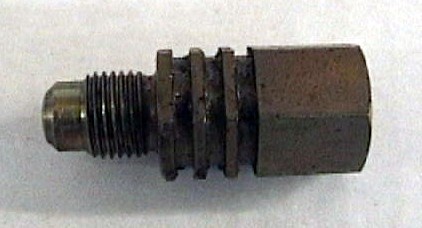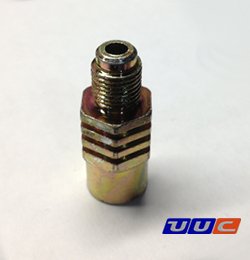
Removal of the Check Valve / Clutch Delay Valve
(CDV)
Symptom:
slow clutch
engagement on manual transmission models including F30, F10, E9x, E8x,
E53, E46, E39, E36 M3 and Z3M.
Models: F30, F10, E9x, E8x, E53,
E46, E39, Z4, E36 M3, Z8, and Z3M.
Many owners of the cars listed above
have noticed
that they will get an excessive amount of clutch slippage and poor
clutch engagement feel. This problem is most noticeable in situations
calling for hard acceleration or quick shifting.
The cause is an added check valve (BMW calls it
a "lock valve") in
the
clutch hydraulic circuit that is intended to slow the engagement of the
clutch as you release the pedal. This hydraulic restrictor device is
intended to smooth out the feel of shifts and potentially reduce the
shock load on the drivetrain. The reality is it causes a high rate of
wear on the clutch and excessive heat buildup in the flywheel leading
to early failure.
Lock valve:

A little-known detail about the 1996-1999 M3/MZ3
3.2l (including Euro
cars) is that they too have this part. Similar to the affliction
of the later cars, with even greater effect on cars with
aftermarket lightweight flywheels. Due to the quick-revving
nature of these setups, the slow-down of the check valve causes
momentary excessive clutch slippage. A particular example is a
"power shift" where the revs hang for a moment before fully
engaging. M3s with the 3.0l engine do not have this part, nor do
any other E36.
The two possible
locations:
(click for a larger
view)
Replacement of the valve with the no-restriction
replacement Unlock Valve in these cars results in very crisp and
firm shifts. With the lightweight flywheel, the engagement is so
positive and quick that passengers are pushed into the seat with
greater force than ever before. Replacement is as simple as unscrewing
the original lock valve from the slave cylinder line, replacing it with
the Unlock Valve, and bleeding the slave hydraulics.
New Unlock Valve:

